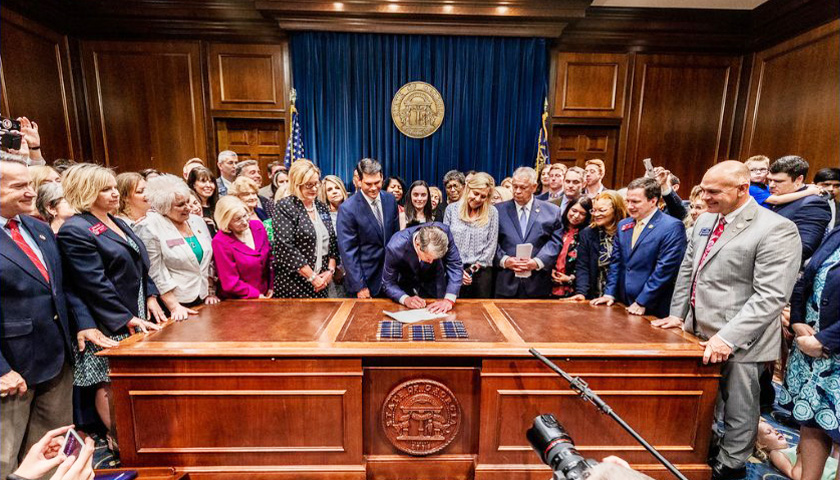by T.A. DeFeo
Friday’s U.S. Supreme Court ruling on abortion could allow Georgia to reinstitute its fetal heartbeat law that bars most abortions after about six weeks.
On Friday, the nation’s highest court overturned Planned Parenthood v. Casey and Roe v. Wade, a ruling that established abortion as a constitutional right. The opinion comes in Dobbs v. Jackson Women’s Health Organization, a challenge to Mississippi’s 15-week abortion ban.
Georgia Attorney General Chris Carr said he is asking the Federal 11th Circuit Court of Appeals to reverse a district court decision on the state’s heartbeat bill in light of the Dobbs decision.
“I believe in the dignity, value and worth of every human being, both born and unborn. The U.S. Supreme Court’s decision in Dobbs is constitutionally correct and rightfully returns the issue of abortion to the states and to the people — where it belongs.
“We have just filed a notice in the 11th Circuit requesting it reverse the District Court’s decision and allow Georgia’s Heartbeat Law to take effect.”
In a statement, Gov. Brian Kemp said he hoped the ruling would reinstate Georgia’s House Bill 481, the Living Infants Fairness Equality Act, commonly called the “Heartbeat Bill.”
— Governor Brian P. Kemp (@GovKemp) June 24, 2022
“Today’s landmark ruling is a historic victory for life,” Kemp, a Republican, said in a statement on Twitter. “Working closely with the General Assembly, we have made significant strides to stand for life at all stages — from adoption and foster care reform, to combatting human trafficking and passing the heartbeat bill — and we will continue that important work in the days and months to come.”
In 2019, U.S. District Judge Steve C. Jones blocked the measure to ban abortions once a fetal heartbeat is detected, noting that because the U.S. Supreme Court has upheld Roe v. Wade, a state may not ban abortion. In September 2021, an appeals court issued a stay pending today’ s Supreme Court decision in the Mississippi case.
The ruling was predictably met with reactions that fell along party lines.
“Today, millions of women in Georgia and across the nation watched as the Supreme Court rolled back their right to control their bodies and their futures,” Democratic gubernatorial candidate Stacey Abrams said in a statement.
“Right here in Georgia, extremist Brian Kemp prides himself on signing ‘the toughest abortion bill in the country,’ even as the state grapples with a broken healthcare system and a shortage of medical access,” Abrams added. “Kemp’s dangerous and extreme six-week abortion ban will soon be the law across Georgia, forcing women to face prosecution and doctors to risk incarceration for a medical decision.”
This week, Carr joined attorneys general from 19 other states to call on the U.S. Department of Justice to investigate what they say is growing violence targeting pro-life groups nationwide.
“The ACLU of Georgia is committed to using every tool at our disposal to keep abortion safe and legal in Georgia,” Andrea Young, executive director of the ACLU of Georgia, said in a statement. “Women must be able to make these personal, private, decisions for themselves with their own families, their own faith and their own physicians without interference from politicians.”
But a conservative-leaning organization praised the ruling, saying an “unborn child now has a fighting chance at life.”
“This is a great day of joy — especially for us in the black community, as abortion is the number one killer of black Americans,” Steven Mosley, a member of the National Center for Public Policy Research-sponsored Project 21, which describes itself as a voice of black conservatives, said in an announcement. “As stated in the Declaration of Independence, we have the right to life. Today, those words ring truer for the unborn.”
– – –
T.A. DeFeo is a contributor to The Center Square.
Photo “Kemp Signing Georgia LIFE Act” by Governor Brian P. Kemp.








